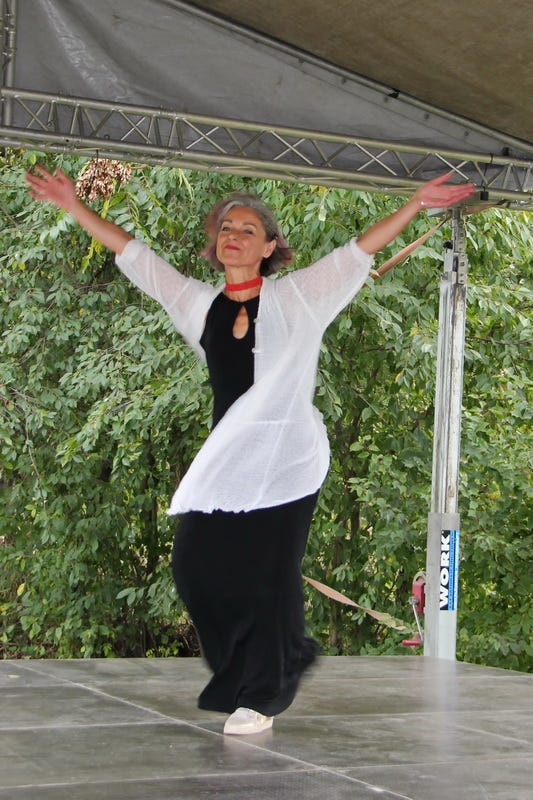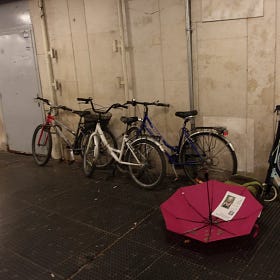MAGYAR »
How important is social sensitivity?
In a LinkedIn post the author feels bad about the incoming humanitarian disaster, because the number of poor people is growing and they might be forced to beg. While those who would be able to do something against poverty, should feel shit and should have bad conscience, for this is their duty and responsibility. Otherwise, one cannot be a human, without social sensitivity and a willingness to help.
This was a little bit rough summary of what the lady, a beautiful young woman who is specialized in coaching and training leaders, and in organizational development has written so beautifully that one can only agree with her words, and many people did express that.
However I, a very sensitive artist whose feelings can be touched super easily and who can shed tears of overflowing emotions in the most various situations within one second, I remain totally cold and don't react to sensitizing attempts.
Moreover, if I also tell you that I simply cannot sympathize with beggars laying about or with those who ask for money "for a train ticket" at the station, you dear Reader might even think that my heart is made of stone.
Well, when one has been forced to sing in the streets to be able to survive, one learns a lot of about human beings, things that others in their comfy cars and offices probably will never have a chance to notice or imagine, let alone think about it.
Those dressed up folks who step out from the theater in the evening and give a couple of Forints to the poor old homeless man and feel good for having helped humanity, cannot know that the dirty, stinky haggard with his madly barking dog that sometimes attacks passersby and even kids, "lives" in the most frequented public areas of our beautiful capital (which is forbidden by law), he is often cursing endlessly, insults tourists, and when he gets a delicious, fresh cone (from me, the girl singing in the street for her supper), he throws it to his dog, along with an angry murmur, instead of a thank you.
What the well-intentioned, socially sensitive donor who is shopping in the posh street also cannot know is that another, skin and bones, obviously sick elderly man with a paper cup from McDonald's, sits and lays day and night by the lamp post, often knocked out, and only stands up to urinate in a corner or in a doorway of a beautiful house, and when he goes to the next street with his pimp to give him the money he made and to get his dose of food, alcohol, cigarette (and maybe some other stuff). I estimate that that McDo paper cup must collect 30 thousand Forints (76 Dollars/73 Euros) or so, a day, which is about 2.6x more than the net average pay for those who work. By the way, the poor, unfortunate old man wears Adidas shoes in excellent condition on one day, Nike on the next day, then Tommy Hilfiger...



What the kind good-doer also cannot know is that the young Romani mother begging all evening in the pedestrian zone of downtown Budapest (the 5-month baby's head is uncovered at 9pm in November!), is delivered to shiny Fashion Street in a shiny big car by her husband at the beginning of her "shift", along with two older kids and sometimes with a grandma. Furthermore, the poor mom buys food at Starbucks, which is not a cheap option at all, not with a decent salary either. The whole family is obese. But of course, one's heart will melt and one must give them money so that they can eat - right?
I could tell similar real life stories that I have observed, for hours, and which the apostles of social sensitivity have not the faintest clue about.
No doubt about the good intentions of this woman for sharing her thoughts on the subject on LinkedIn and I appreciate her attitude; her words must inspire and motivate others too - albeit in a different way than my non-PC opinion.
This topic has been on my mind for a while, therefore I am grateful to her for giving me a kick to write this.
However, there are three issues with these speeches, writings on social sensitivity, and it's a popular subject: media, books, lectures, courses, entire educational and even political strategies exist about how to sensitize people toward various groups, like the poor, immigrants (mostly illegal ones! - don't these good people care about the laws??), members of a certain religion or certain ethnicities, skin color, physical or mental problems, even toward certain views. The list is becoming longer and longer, we must be very careful with what to say or do, in order not to accidentally hurt anyone with one word, because it will be taken as "discrimination"...
Social ingeneering sucks, and it would require a separate post, but let's stick to the question of poverty!
The problem with expressions calling for social sensitivity towards the poor:
Generalization. "Poverty" is a very broad concept: different approach is needed for a village in Africa without good drinking water, tools and know-how but with diligent inhabitants who are eager to learn, than the homeless of a big city where many of them are just laying and hanging around drunk and/or drugged in their own feces, and are often violent. Another approach for an honest working employee or entrepreneur who, due to some faulty measure, cannot continue his work and ends up on the floor; or for the Gypsy family with many children where the father spends the benefit money in the pub and sends his teenage daughter to be a whore (yes, this does exist here in Hungary and in other countries too); yet another case is the village widow who wants her intelligent children to be educated.
Such "Let's be good! Let's feel sympathy toward others!" words can cause remorse, shame, and guilt when they make you feel that you must, or else. Blaming, making others wrong is not a good motivation, regardless of the topic or activity, as it is a low level of energy and awareness.
Therefore real, constructive solutions, proposals, and ideas cannot be born in such a state of mind, from such an attitude! As the LinkedIn article itself says nothing more than to be socially sensitive and helpful.
Great, let's be! And beyond that?
Where are the motivational messages of success trainers, coaches, managers, and self-development manuals?
"You can do anything, it's up to you!"
"Everything is in your head!"
"Wealth is just a matter of attitude"
"You are in charge/the Master/the Creator of your own life"
"You can do it, you just have to believe in it and want it!" - and so on, ad infinitum.
All these don't apply to poor people??
And where are the centuries of wisdom?
"Everyone is the blacksmith of his own luck" (this is a Hungarian saying)
"Help yourself, God will help you too!"
"You reap what you sow", and so on.
Are these no longer valid? Or not for everyone?
If there are people who do not feel responsible for their own lives, but instead blame others, point at others, expect others to take care of them without giving ANYTHING in return (apart from the self-congratulatory, virtue signaling feeling that "I gave the poor man some money, look, what a good person I am!") - then why should OTHERS take responsibility for them? Who can expect this from them, and based on what?
Of course, let's help others, as this is one of the driving forces of humanity! There are great charitable, civil, church, voluntary institutions and organizations that are worth supporting, because they really provide effective help to those in need, just as a lot can be done with individual, community initiatives. I myself volunteered for many years, for example in human rights or drug prevention projects.
It's also interesting that among the commenters of the mentioned LinkedIn post, there was only one other person besides me who believed that everyone should improve themselves first, and basically this is the solution.
Yes, in my opinion too, this leads to the solution: let everyone improve their OWN lives first, and thus, through our higher level energies, vibrations, radiations (call it whatever you want), we can already have a positive effect on our fellow humans who need it.
(Here I am just remembering a story about a homeless man in Vienna and another about a sad girl in Zürich. I will tell you about them later.)
The ones who receive the “broadcast” from us will be able and willing to do more and better on their own, FOR THEMSELVES, and later even for others.
But if they don't, we can't really help them anyway...
It's just a bonus if we do something for them materially as well.
— Andrea Gerák, 2022 November 8
Cover photo: Saint Stephen’s Basilica in Budapest Hungary, view from one of my “stages” when I sing in Zrínyi Street
Did you like this post?
If you would go beyond words and clicking a Like, and really step into the field of deeds, as far as social sensitivity and helpfulness are concerned, here is an excellent opportunity: plesae support my work!
Here you have a multi-talented artist whose poems and other writings you can read in this blog, and whose songs, photos, and videos you can enjoy, and who (perhaps even at this very moment) is standing somewhere on the street with her sick legs, to brighten the day of many with her wonderful singing, to cheer them up in the cold, dark, late autumn weather - and indirectly also your day...
Do you think I deserve better than singing in the streets?Ways of how you can help me:
Please invite me to perform or recommend me, donate, buy something from my shop, share away… »
Similar posts:
A durva valóság, PR máz nélkül - The harsh reality, without PR facade
Itt a karácsony; ilyenkor az emberek szívesebben tesznek jót idegenekkel, ismeretlenekkel - miért ne segítenél egy művésznek, akit valamennyire ismersz? (Mindjárt születésnapom is lesz, egyébként.) // Christmas is here, and at this time of the year, people are more ready to do good to others, often to strangers, people they don’t know at all - why not hel…
Shoes - Cipő
MAGYAR >>> Break-ups often give me an occasion to escape into creativity… I wrote this seven years ago, in the last days of October - and it might be relevant to you as well, now in 2022, whether it’s any kind of relationships or some other subject.









Well said. A bit wordy but excellent observation that people need to hear.
Where I live (Yukon) there are bountiful social supports. Anyone begging is 99.9% going for alcohol/drugs.
I give rarely and only if they make an effort (such as performing) or can make me smile.
Btw, you seem like a fun person.
There’s a tetrad of dark personality traits: everyday sadism, Machiavellianism (characterized by the ends justify the means [for example]), malignant narcissism, psychopathy. These dark personality traits are found in every layer of society.